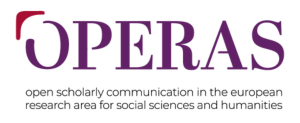

Alignment beyond PALOMERA
Authors: Niels Stern, Johan Rooryck
Contributors: Pierre Mounier, Vanessa Proudman, Maciej Maryl, Laura Bandura-Morgan
Reviewer: Frances Pinter
PALOMERA (Policy Alignment for Open Access Monographs in the European Research Area, https://operas-eu.org/projects/palomera) is a two-year project funded by Horizon Europe. It brings together 16 partners across Europe to investigate the landscape of Open Access (OA) funder policies and to understand why only few of these include academic books. Based on thorough research the project will develop actionable recommendations addressing these challenges and propose ways in which research funders and research performing organisations may align on a set of principles for OA book policies. Already in the first year we can see the need for a specific and urgent commitment which is outlined below.
1. Key recommendation
We recommend that research funding agencies would agree on a support mechanism for the future coordination of the recently established OA Books Funder Forum.
2. Motivating the recommendation
2.1 Preliminary findings
PALOMERA participants have been very busy collecting data since the project began in January 2023. Open Access policies and strategies have been researched in 39 ERA countries, a survey has been issued, and over 40 in-depth interviews have been conducted. The project’s research team is currently analysing all this data and some preliminary results have emerged.
It is quite clear that the European landscape of Open Access academic book policies is very fragmented and diverse. Our initial collection of documents and reports as well as interviews with national and regional experts show that although many countries in the ERA have national open science policies or strategies, these most often lack detailed measures supporting Open Access for academic books. We also found that Open Science policies are more often formulated at the institutional level.
In many countries, funding institutions (e.g. Lithuania, Poland, Switzerland), infrastructure providers and libraries (e.g. Croatia, Hungary, Sweden), as well as research performing organisations have developed their own policies to support open access to publications. However, these policies often lack explicit reference to academic books, and focus on journal publications. Moreover, the policies often consist of a set of mere recommendations and guidelines without any binding mandate.
In short, both at the national and institutional levels, a coherent approach to Open Access for academic books is lacking. This can often be attributed to the lack of specific funding and incentives for Open Access books, as well as to negative attitudes of researchers and publishers towards Open Access for academic books.
2.2. Key issue
The uneven nature of OA book policy development across the ERA calls for action to enable research funders in every region of the European Research Area (ERA) and beyond to develop efficient OA book policies. These should include input from key stakeholders to ensure that funders develop resilient policies that align on a set of principles while allowing for regional differences, thus respecting bibliodiversity. An important objective of the PALOMERA project is to inform funders and policy makers in this process based on this new corpus of evidence that the project is currently analysing.
2.3. Key action
PALOMERA has established a Funder Forum as an informal community of practice for funders to address OA books. The first Funder Forum meeting took place on 23 May 2023 and saw participation from around 40 research funders representing over 20 countries (invitation available here). The engagement of the participants in the meeting was significant and showed a clear need for funders to come together to discuss policy making for open access books amongst peers. The many discussions in small break-out groups confirmed the preliminary findings of our research. Some funders are very advanced in their policy making efforts in this field while others have not even considered developing such policies. However, all seemed interested to learn and exchange knowledge and experiences.
The funders expressed that business models and infrastructures were their two topics of priority for the next Funder Forum meeting which will take place on 20 November 2023 (funders and policy makers who were not part of the first meeting but would like to join can email to scientific coordinator Niels Stern, stern[@]oapen.org).
3. Contextualising the recommendation
The diverse and fragmented landscape that emerges from our initial findings and from the Funder Forum means that alignment of funder policies regarding Open Access to academic books cannot be fully achieved in the scope of the 24 month PALOMERA project that ends on 31 December 2024. This leads us to the recommendation stated above that research funding agencies – whether national or institutional, public or private – would agree on a support mechanism for the future coordination of the recently established OA Books Funder Forum.
The need for a well-structured and coordinated forum where funders can meet regularly to discuss open access book policies and align their efforts in this domain will increase, and it will grow beyond the lifetime of the PALOMERA project. To ensure the continued existence and coordination of the Funder Forum, dedicated financial support is required. As an open infrastructure dedicated to books, OAPEN already delivers services to research funders like DFG, FWF, SNSF, NWO, ERC, and Wellcome and would therefore be ready to engage as the coordinator of a continued Funder Forum provided that sustained multi-year funding for this is made available. Future meetings of the Funder Forum will address this key recommendation and explore different scenarios for its implementation.
The official deliverable has been published on Zenodo.
Version 1.5 – under EC review. Funded by the EU. Views and opinions expressed are however those of the author(s) only and do not necessarily reflect those of the European Union or the Agency. Neither the European Union nor the granting authority can be held responsible for them.
